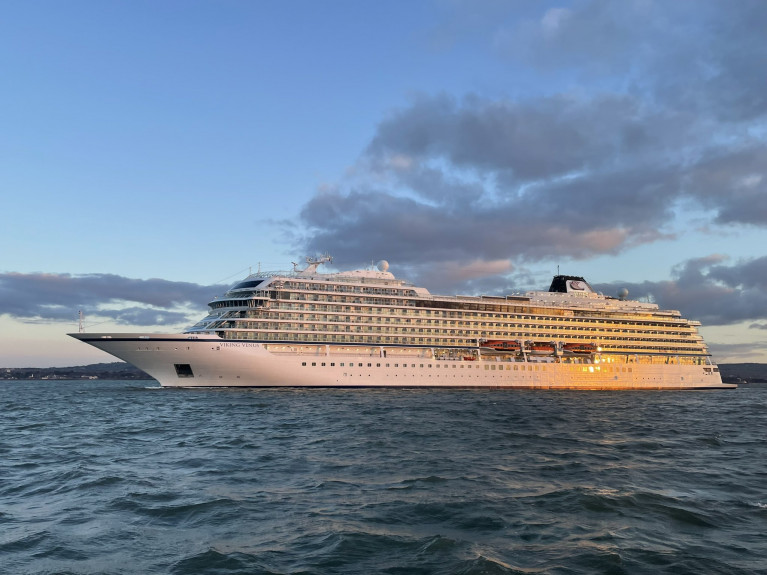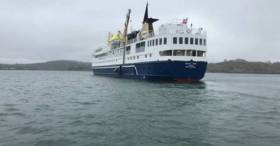Displaying items by tag: 1st cruise caller
First Cruise Ship to Belfast Harbour of 2022 Arrives As Tourism Industry Anticipates Bumper Holiday Season
The first cruise ship to Belfast Harbour for the 2022 season arrived on Friday, with the tourism industry anticipating a bumper season after taking a massive hit from Covid-19.
The Viking Venus, a 930-passenger vessel owned by Viking Cruises, is the first of 130 cruise ships expected to bring up to 340,000 visitors to Belfast in 2022.
Belfast is a stop on Viking Cruises’ 15-day voyage between London and Bergen in Norway (which included a tender call of Dun Laoghaire Harbour)
Belfast Harbour said 18 of the cruise ships would be first-time visitors, and many would visit on multiple occasions. In total, there are 50 vessels from 33 cruise lines due to arrive.
Newcomers include the Ambassador Ambience from British cruise line, Ambassador, and Princess Cruises’ Enchanted Princess and Island Princess.
Michael Robinson, Belfast Harbour’s port director, said: “Following two challenging years for tourism, the team at Belfast Harbour is thrilled to have 130 cruise vessels booked for arrival at our port in 2022.
Further coverage the Belfast Telegraph reports.
Cape Clear Port of Call A First By Cruise Ship
#CruiseLiners - For the first time ever a cruise ship called to the West Cork island of Cape Clear last Thursday morning with a group of 70 bird watchers.
Guests on the cruise ship Ocean Nova, writes the Evening Echo, were escorted by guides from Birdwatch Ireland who have a manned bird observatory on the island, and visited some of the island’s prime birdlife, wildlife, and marine life viewing spots.
While the main focus of the visit was birdwatching, they also took time to visit the island’s museum which depicts life on Cape Clear, past and present, and view its impressive exhibit about the building of the iconic Fastnet Rock.
Upon departure, the ship sailed around Fastnet and entered Schull Harbour, another first.
From there, coaches brought passengers to the Mizen Head Signal Station and Visitor Centre where they enjoyed not only the scenery, but observed the bird and marine life in this area.
To read more on the story, click here.






























































